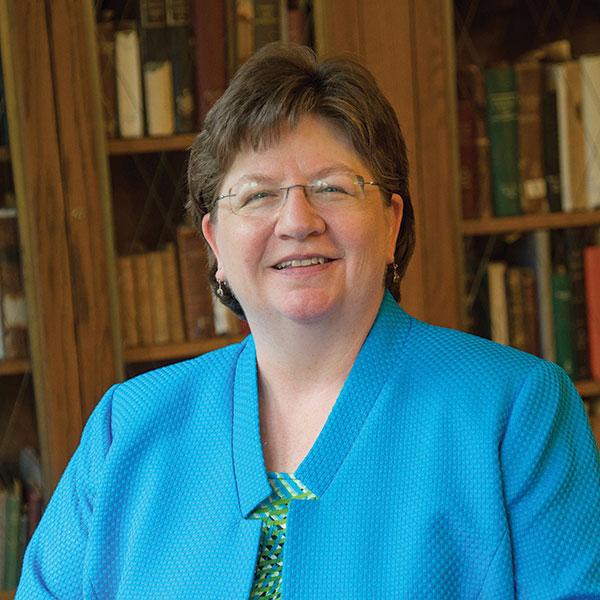ACADEMICS
Liberal Arts for the 21st Century
Nazareth has a long history of commitment to the liberal arts. Are they still relevant today?
by Dianne Oliver, Ph.D.

At Nazareth, we have been committed to the liberal arts from the founding of the institution in 1924. We have also long engaged in professional education in fields ranging from teaching to nursing to speech pathology and beyond. Throughout the almost hundred-year evolution of curricula and program offerings, we have kept a deep and abiding commitment to the liberal arts serving as the center of gravity for a Nazareth education. Indeed, we affirm that the integration of the liberal arts, professional education, and civic engagement in service to the community are at the heart of our mission. Civic, business, health care, and education leaders all insist that the very knowledge, skills, and dispositions that are central to success in the professional and the political world are exactly those that are developed through engagement with the liberal arts. Life in this century cries out for people with this type of background who think deeply and critically, who communicate well, and who have studied the wisdom and the tragedies of the past and present to imagine a possible future for our society.
What does such a commitment to the liberal arts and this kind of integration mean in the 21st century at a school like Nazareth College?
Ultimately, the commitment to the liberal arts for a 21st century student is a commitment for them to learn more, to do more, to be more than they would without the centrality of the liberal arts. Our new Liberal Arts for the 21st Century initiative is intended to expand integrative and boundary crossing opportunities—to add more to what we already do well. Crossing traditional disciplinary boundaries enables students to learn from different perspectives and ways of approaching problems, integrating what they learned from those multiple perspectives, and using that new knowledge and way of thinking to respond to the world’s challenges and opportunities.
We already do this when we ask our students to explore an Enduring Question through a variety of liberal arts disciplines as part of our Core Curriculum. We already do this when we have them take courses that help them integrate different perspectives on that question with experiential learning to share their insights in our Core Milestone Experience. We know that life in the 21st century adds its own dimensions—the need for digital literacy, an ever-broadening human knowledge-base, the desire for cultural fluency, just as some basic examples—and we want to ensure attention to those dimensions in what we do.
Building on the long history of this type of Nazareth education, we want to do more 21st century work by teaching courses where faculty members from different disciplines collaborate on a single course, each facilitating students looking at issues or problems through different lenses and helping students experience and enact integration at its best. We want to do more by finding ways to include liberal arts perspectives in our excellent work in interprofessional education—bringing together students to learn to collaborate professionally, while also attending to areas like intercultural awareness or sensitivity. We want to do more by creating opportunities for students to work on projects with peers from other majors, doing what we know happens throughout life where nothing falls into nice, neat categories and problems are seldom solved by looking at them in only one way. We want to help our students understand how to cross boundaries and how to integrate what they learn in different areas and through different experiences, bringing together the best aspects of their Nazareth education to respond to increasingly complex challenges and opportunities in the world. We want to create the possibilities for our students to learn more, do more, and be more.
This type of integrative, boundary crossing education is what is needed to solve the difficult and messy problems of today’s world, and to live lives of meaning and purpose now and into the future. This is Nazareth at its best, and this is the Liberal Arts for the 21st Century.
Dianne Oliver, Ph.D., is the dean of the College of Arts and Sciences.

Dianne Oliver, Ph.D.